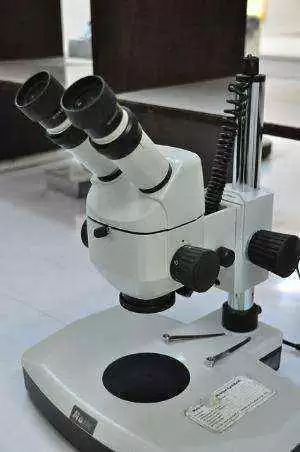Celiac.com 11/02/2011 - With the rise in celiac disease diagnoses, increasing awareness of gluten-free issues, and an explosion of gluten-free related products, it is no surprise that supplements claiming to break down gluten would find their way onto the market.
In fact, a number of supplements currently on the market claim to do just that: to break down gluten after it has been consumed.
Celiac.com Sponsor (A12):
 Are these claims accurate? Are these products in any way helpful for people following a gluten-free diet? Finally, do these supplements offer a safe alternative to a gluten-free diet for people who suffer from celiac disease and/or gluten-sensitivity?
Are these claims accurate? Are these products in any way helpful for people following a gluten-free diet? Finally, do these supplements offer a safe alternative to a gluten-free diet for people who suffer from celiac disease and/or gluten-sensitivity?
For example, GlutenEase, made by Enzymedica Inc., contains a blend of enzymes, including amylase, glucoamylase and dipeptidyl peptidase-4 (DDP-IV) — that are intended to "digest both gluten and casein, a protein found in milk," according to the company.
The website for GlutenEase says that the supplement can "support" people who have trouble digesting gluten. However, and most importantly, the site says that GlutenEase is "not formulated" for people with celiac disease.
Gluten Defense, made by Enzymatic Therapy Inc., contains a similar blend of enzymes that includes DDP-IV, lactase and amylase.
The site for Gluten Defense says the product is "specifically formulated to defend against hidden gluten" that can cause gas, bloating and indigestion.
But what does that mean? Does that mean that taking the supplement might offer people with celiac disease some extra protection against accidental gluten contamination? That seems doubtful, and unproven from a scientific standpoint.
Unlike GlutenEase, Gluten Defense offers no specific disclaimer for people with celiac disease. There is also no claim that the product is safe, or in any way formulated for people with celiac disease.
Dave Barton, whose title is "Director of Education" for Enzymedica, claims that many people who say they have celiac disease see improvement when taking product, and that some even manage to begin eating wheat again.
However, Barton is quick to warn consumers that there's "no way to guarantee that it would break down 100% of gluten proteins."
But that's the problem isn't it? It would need to break down nearly all of the gluten proteins in order for those proteins to not cause damage to the person with celiac disease.
The fact is that these enzyme supplements may break down a few molecules of gluten protein, but no supplement exists that will make it safe for people with celiac disease to eat gluten again.
According to Dr. Stefano Guandalini, professor of pediatrics and director of the University of Chicago Celiac Disease Center, "[t]he amount of gluten that these would be able to digest is ridiculously low. For people with celiac disease, these are something to completely avoid."
Dr. Peter Green, director of the Columbia University's Celiac Disease Center, agrees that current enzyme supplements would digest only a small percentage of gluten molecules.
However, Green adds, the basic concept is sound. Pharmaceutical companies are spending hundreds of millions of dollars to create an enzyme-based drug that would permit people with celiac disease to consume gluten. However, Green points out, the companies wouldn't be spending that money if a successful over-the-counter alternative already existed.
Bottom line: Enzymes currently claiming to help break down gluten protein will not permit people with celiac disease to safely consume products made with wheat, rye or barley. Any benefit these enzymes may provide for people with celiac disease is strictly theoretical, and likely minimal at best.
A completely gluten-free diet is currently the only proven treatment for celiac disease. Talk with your doctor before making any changes to your gluten-free diet for celiac disease treatment.
Source:
-
Open Original Shared Link


(2).webp.acecc703b11c62fd44155e809f3d6e53.webp)



Recommended Comments